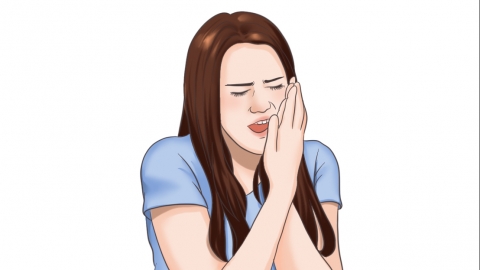What kind of water can a patient with toothache drink to relieve pain?
Generally, patients with toothaches can drink warm water, saline solution, peppermint water, honeysuckle tea, or clove water to help relieve pain. These beverages may alleviate local discomfort through cleansing, anti-inflammatory, and soothing effects. Specific details are as follows:

1. Warm water: Warm water gently cleanses the mouth, rinsing away food debris and preventing irritation to inflamed gums or cavities that could worsen pain. It also soothes oral mucosa and reduces sensitivity caused by hot or cold stimuli. When drinking, it is recommended to sip slowly to avoid strong water flow directly impacting the painful area.
2. Saline solution: A mild saltwater rinse has antibacterial and anti-inflammatory properties that help inhibit bacterial growth in the mouth, reduce gum inflammation, and relieve pain caused by infection. To prepare, dissolve a small amount of table salt in warm water, stir well, swish in the mouth for a few moments, then swallow. This can be repeated several times daily.
3. Peppermint water: Peppermint contains menthol, which provides a cooling and soothing sensation. It can temporarily numb oral nerves, reducing discomfort from tooth pain, while also freshening breath. Fresh peppermint leaves can be washed and steeped in warm water, cooled before drinking or used as a mouth rinse. Avoid overly concentrated solutions that may irritate oral tissues.
4. Honeysuckle tea: Honeysuckle has heat-clearing, detoxifying, and anti-inflammatory effects, making it effective for toothaches caused by excessive internal heat or gum inflammation. Steep an appropriate amount of dried honeysuckle in boiling water, let cool to a lukewarm temperature, then drink. This may help reduce oral inflammation and ease pain.
5. Clove water: Clove contains eugenol, which has natural analgesic and antimicrobial properties that can temporarily relieve tooth pain. Soak a small amount of cloves in warm water until the liquid turns light brown, then drink or use as a mouth rinse. This may provide soothing relief to the affected area.
In daily life, maintaining good oral hygiene is essential—rinse the mouth after meals and avoid consuming excessively cold, hot, or sweet foods that may irritate teeth. If tooth pain persists or worsens, seek timely medical evaluation to identify the underlying cause and receive appropriate treatment to prevent further complications.




